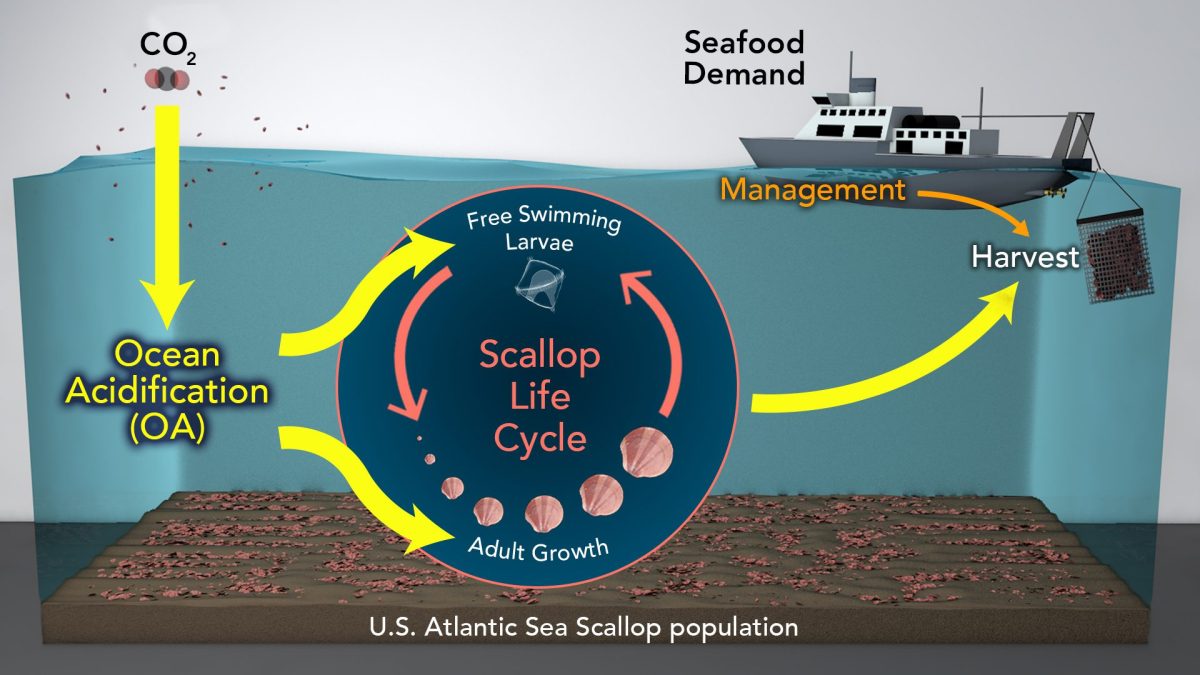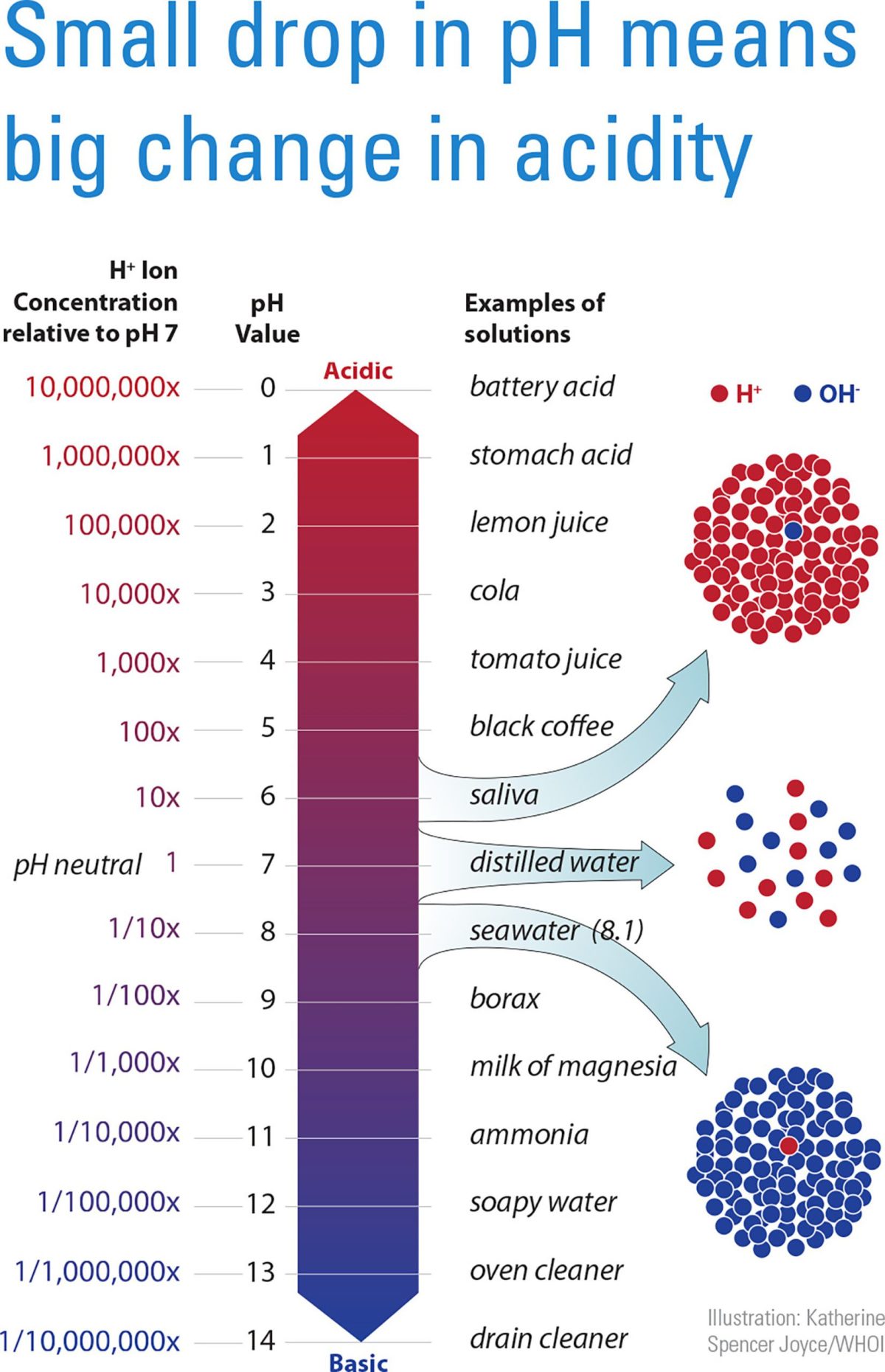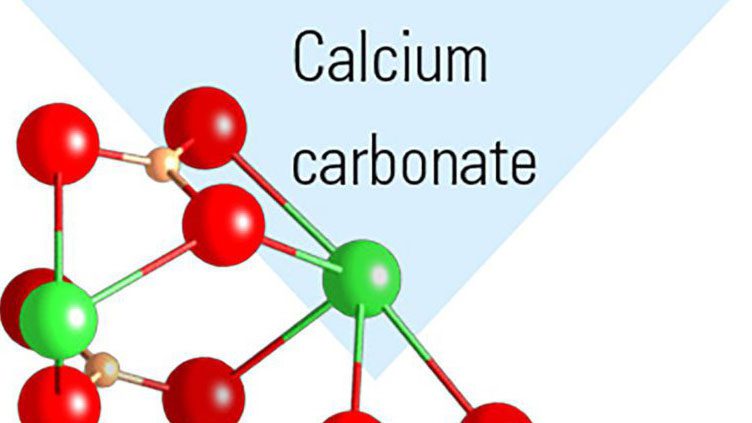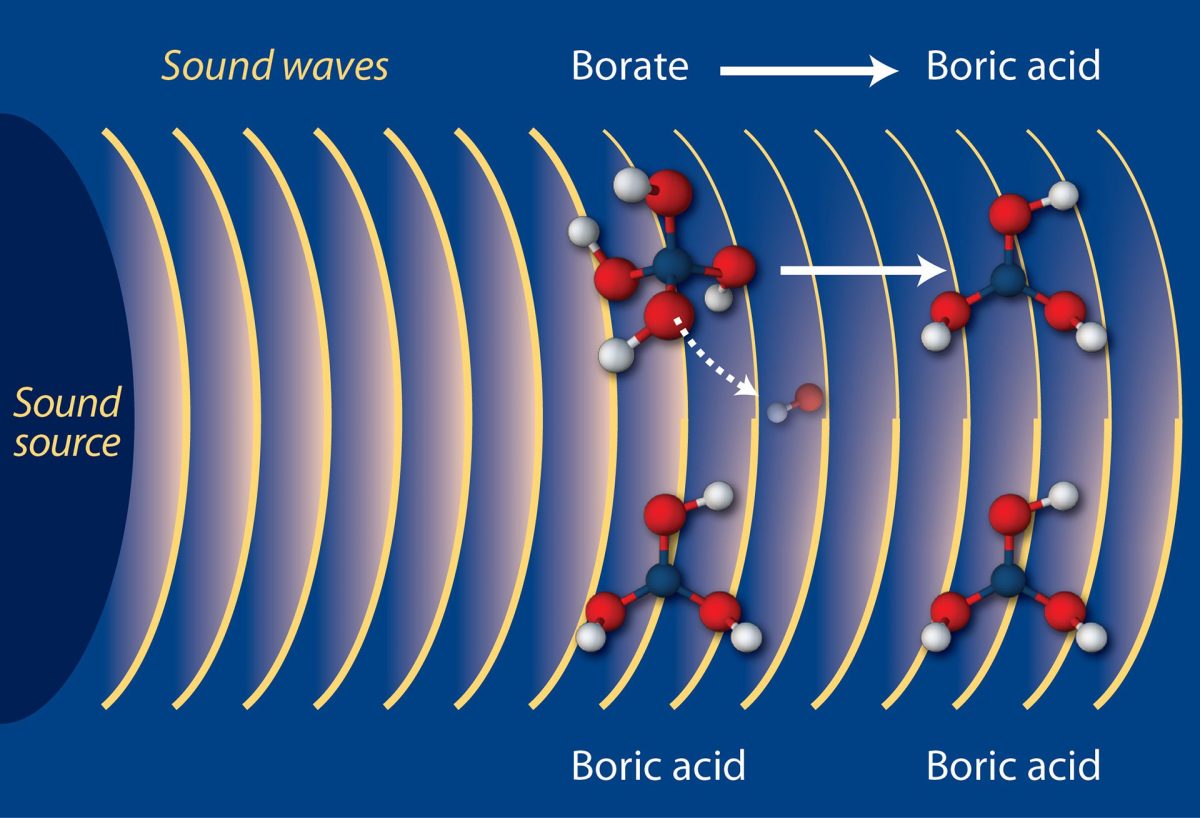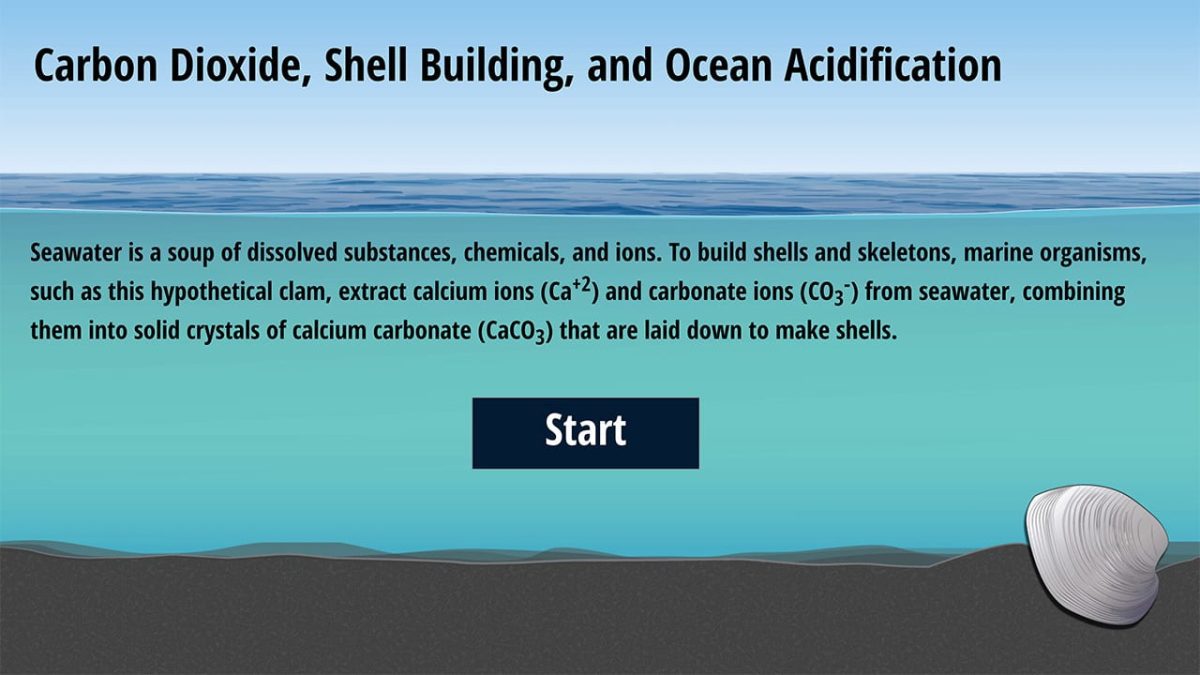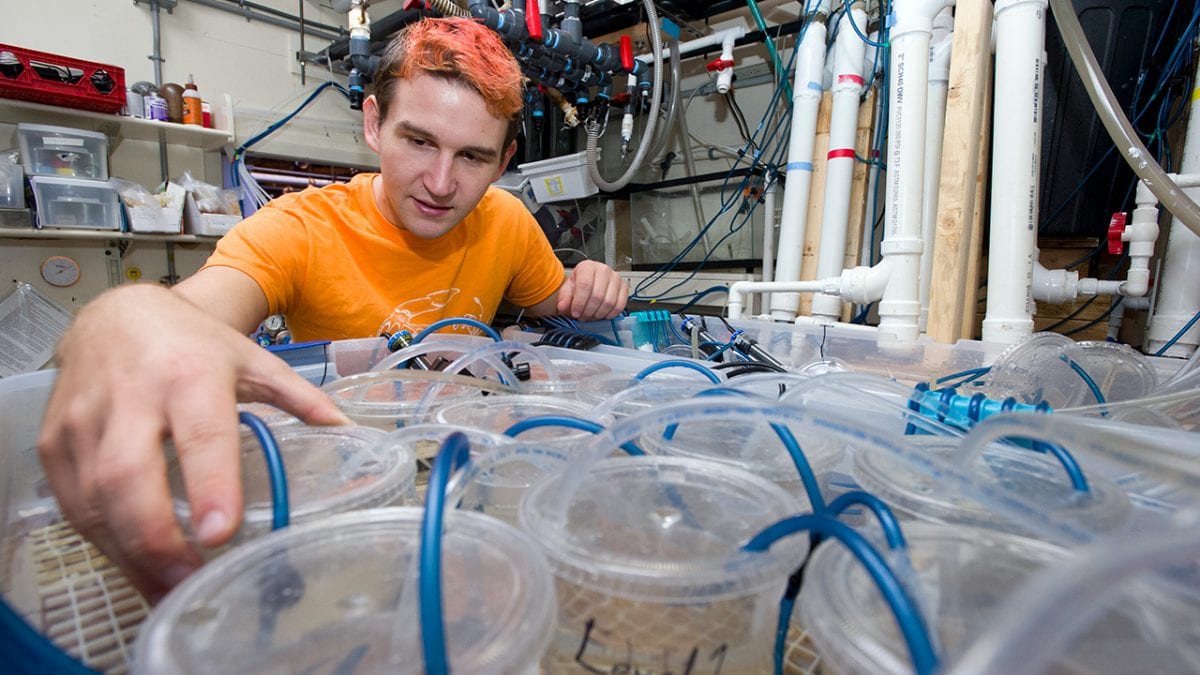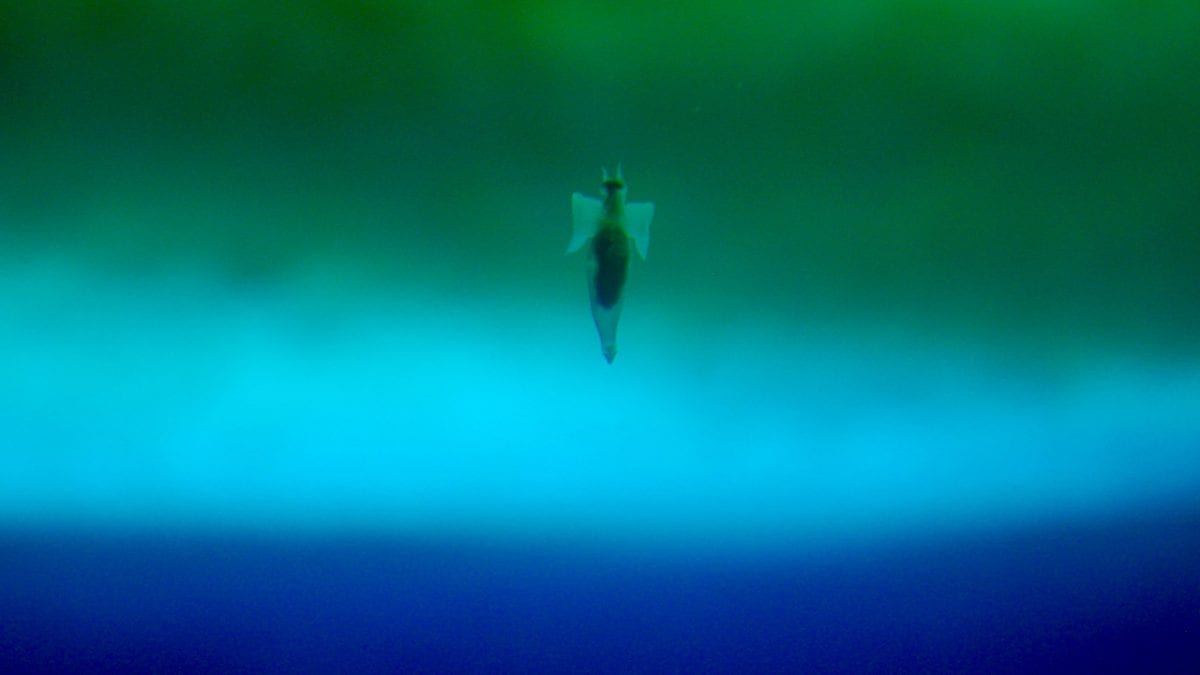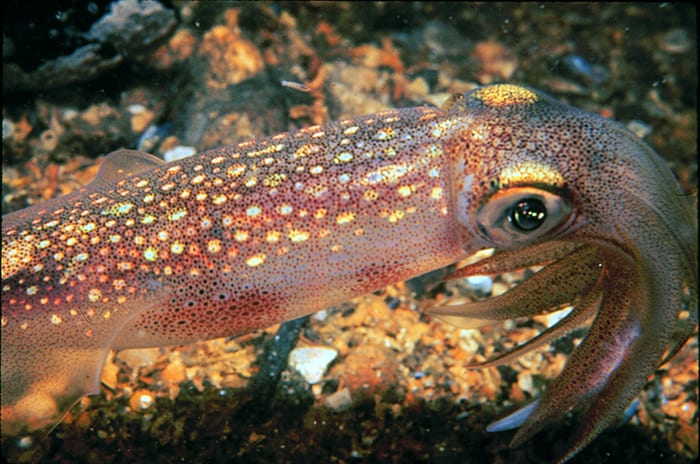In this section
Ocean Topics
- Climate & Weather
- How the Ocean Works
- Ocean & Human Lives
- Ocean Life
- Sustainable Ocean
- Ocean Tech
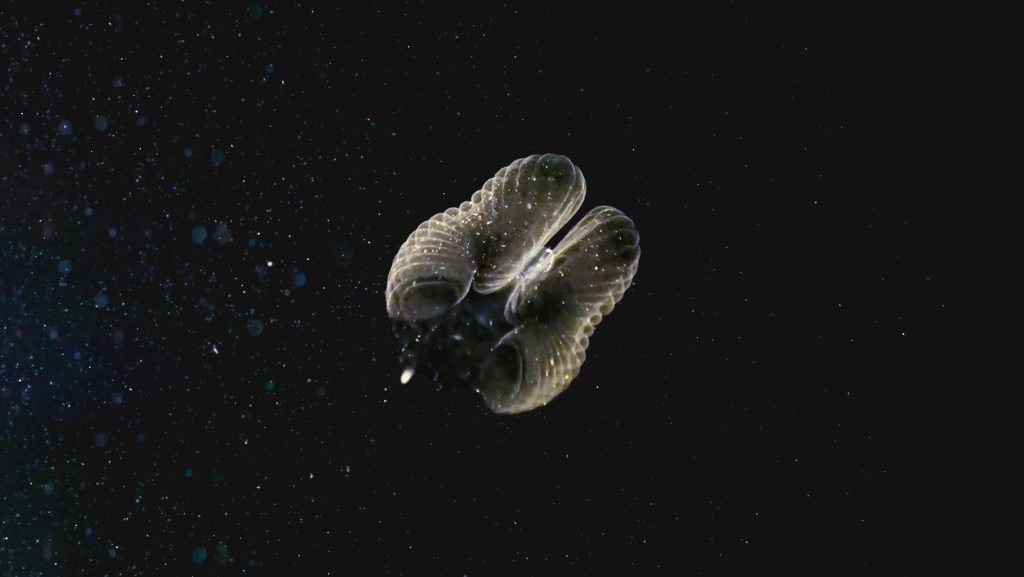
Since the dawn of humanity and long before, the ocean has quietly absorbed carbon dioxide from the atmosphere. Creatures like this filter-feeding larvacean play a key role in the carbon storage process by taking up and excreting this molecule to deeper waters. But as industries continue to belch inordinate amounts of this greenhouse gas, a big question looms: Can the ocean do more to store carbon? Researchers are investigating the efficacy of a range of potential solutions, and what the impacts might be on marine ecosystems and animals like this larvacean. (Photo courtesy of the Mesobot Team, © Woods Hole Oceanographic Institution)
When carbon dioxide mixes with seawater it has the effect of reducing the availability of carbonate ions, which many marine organisms—corals, marine plankton, and shellfish among them—need to build their shells.
There are several chemical reactions involving carbon dioxide (CO2), water (H2O), carbonic acid (H2CO3), bicarbonate ions (HCO3-), hydrogen ions (H+), and carbonate ions (CO3-2) that are important. The series of reactions below describes how hydrogen ions are produced when carbon dioxide reacts with seawater. Since pH is a measure of hydrogen ions in a solution—albeit, an inverse measure—this has the effect of lowering pH.
CO2 + H2O => H2CO3 => H+ + HCO3-
Critically for many shell-forming marine organisms, carbonate (CO3-2) is simultaneously consumed by reaction of the excess of hydrogen ions produced from the reaction above:
H+ + CO3- => HCO3-
Combining the two reactions, the net affect is approximately that one unit of carbonate ion is consumed for each unit of carbon dioxide added to seawater.
CO2 + H2O + CO3-2 ↔ 2HCO3-
Because the reactions run simultaneously, both pH and the availability of carbonate are reduced as the atmospheric concentration of carbon dioxide rises.
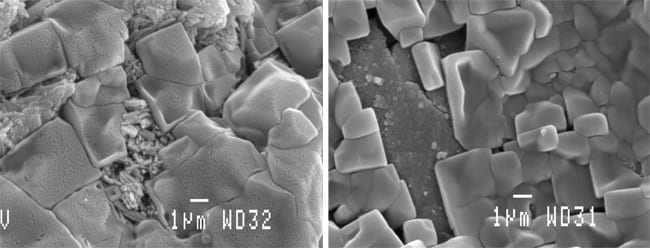
At the microscopic level, blocks of calcium carbonate crystals in conch shells can dissolve away in more acidic conditions caused by high carbon dioxide (CO2). The conch on the right, reared under CO2 levels in today's atmosphere, produced a shell with orderly blocks of crystals, while the conch on the left, grown under 2,850 ppm CO2 conditions, produced irregular, disordered blocks with etched surfaces. (Micrograph by Justin Ries, Woods Hole Oceanographic Institution)
Articles Related to Carbon Dioxide in Seawater
From Oceanus Magazine
To Tag a Squid
How Do Corals Build Their Skeletons?
Searching for ‘Super Reefs’
Coral Crusader
Hidden Battles on the Reefs
Is Ocean Acidification Affecting Squid?
Swimming in Low-pH Seas
Can Squid Abide Ocean’s Lower pH?
News Releases
Ocean acidification causing coral ‘osteoporosis’ on iconic reefs
Scientists Pinpoint How Ocean Acidification Weakens Coral Skeletons
Climate Change Will Irreversibly Force Key Ocean Bacteria into Overdrive
Acidifying oceans could spell trouble for squid
WHOI to Host Public Event on Ocean Acidification
News & Insights
WHOI working to address ocean acidification; protect region’s vital shellfish industry
Working from Home: Mallory Ringham
Kalina Grabb studies some of the ocean’s most reactive chemicals
The oceans are losing oxygen, and faster than we thought
Falling in love with foraminifera
Putting the ‘nuclear coffin’ in perspective
WHOI in the News
The Top Eight Ocean Stories of 2022
The $500 Billion Question: What’s the Value of Studying the Ocean’s Biological Carbon Pump?
Ecology Research: Ocean acidification causing coral ‘osteoporosis’ on iconic reefs
Disentangling influences on coral health
Coral develops ‘osteoporosis’ because of acidic oceans caused by climate change, study reveals
Ocean acidification causing coral ‘osteoporosis’ on iconic reefs
Panel delves into impact of ocean acidification
Features
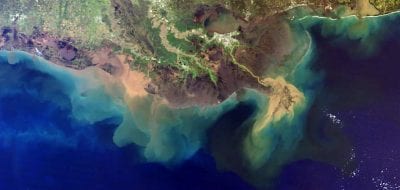
Dead zones occur when the water lacks oxygen. Like us, marine animals require oxygen to breathe, and when oxygen levels…
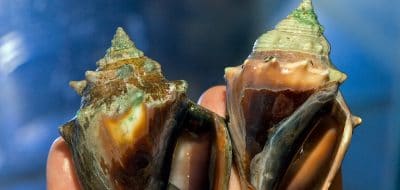
Ocean acidification is a reduction in the pH of the ocean over an extended period of time, caused primarily by…
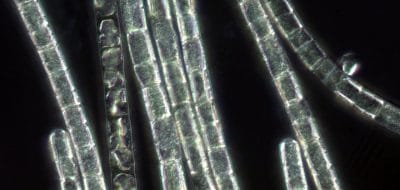
Biogeochemistry studies the cycles of crucial elements, such as carbon and nitrogen, and their interactions with other substances and organisms…
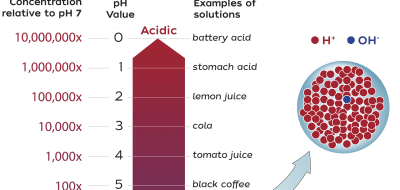
pH is a measure of the concentration of hydrogen ions in a solution. The more hydrogen ions that are present,…
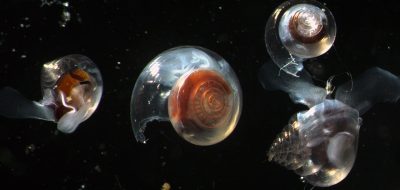
These questions were widely distributed to the research community with the request to draft concise replies summarizing current knowledge with…

